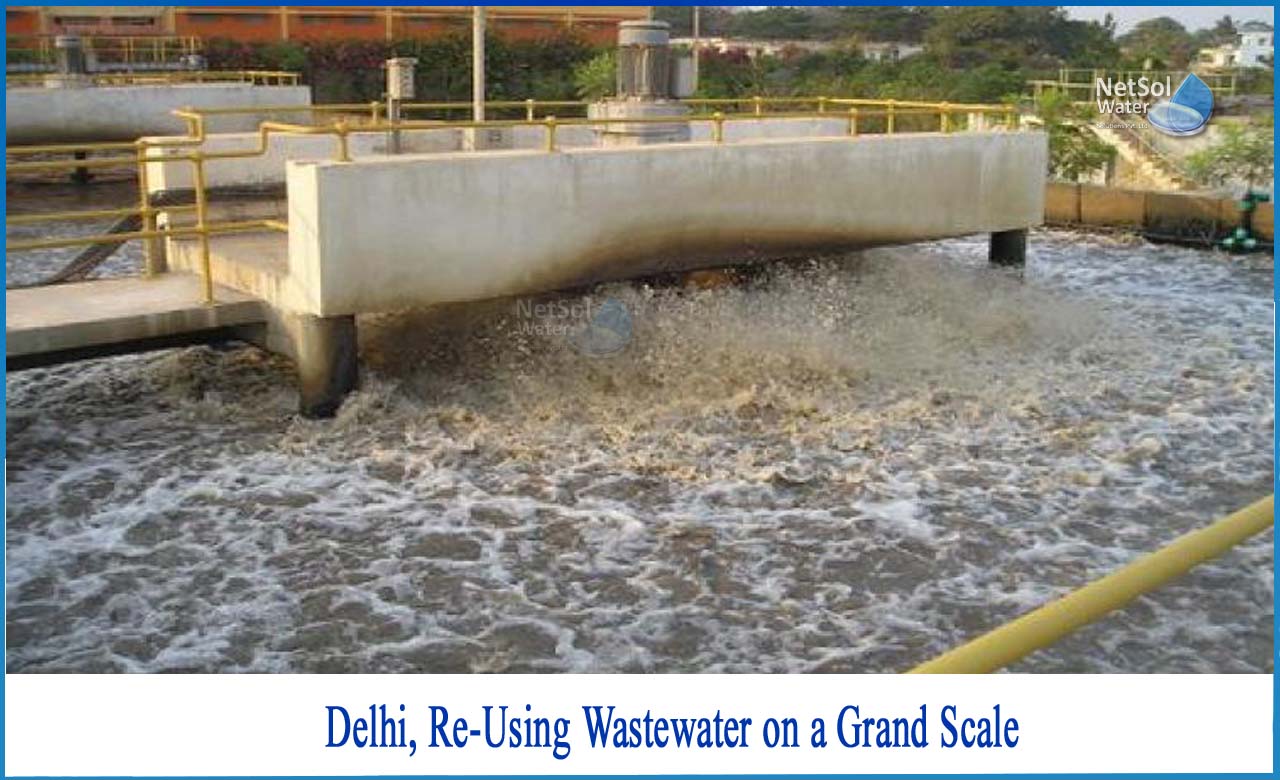Why Delhi Reusing Wastewater on a Grand scale?
New Delhi, India's capital, is located in a sprawling urban area in the country's Delhi National Capital Territory (NCT), which has a population of more than 30 million people and is still growing. It is one of the world's largest cities, nearly doubled in size between 1999 and 2011 and added nearly 4.5 million residents in the last five years alone. Like much of the subcontinent, it is water-stressed.
To address the issue, the Government has launched a 500 million gallon per day (MGD) wastewater reuse plan to match the city's size. Despite the fact that Delhi's 20 wastewater treatment plants currently treat approximately 500 MGD of wastewater, only 90-95 MGD is reused for horticultural irrigation.
Due to lack of water, Delhi obtains the majority of its fresh water from surface water bodies in neighboring states such as Himachal Pradesh, Uttarakhand, Punjab, Haryana, and Uttar Pradesh. Many Indian states have already established reuse programs, and by following in their footsteps, Delhi stands to increase its water supply while decreasing reliance on other states.
Instead of discharging treated effluent into storm drains, the Government's new plan calls for all of it to be used to nurture forests and green areas near sewage treatment plants, recharging depleted aquifers. To raise the water table, 80 acres at the Rohini Sewage treatment plant (STP), 60 acres of forest, and 250 acres of forest near the Coronation Pillar STP will be used as groundwater percolation areas.
Severe Groundwater Issues
Groundwater levels in a number of Delhi neighborhoods have dropped to 64 meters below ground for a variety of reasons. It's no surprise that many illegally drilled bore wells are extracting large amounts of groundwater in a city where 17% of the population has no piped water, where most people have two to four hours of water service per day, and where the poor must pay high rates to water tankers. To make matters worse, groundwater contamination has been reported in certain areas of the city.
Construction is booming in the area, and new buildings, which frequently lack permits, cover an excessive amount of surface area, impeding storm water absorption.
Conclusion
Officials hope that Delhi's new plan will help to alleviate some of the city's water issues. Delhi's wastewater reuse project is on track to dwarf Orange County's massive Groundwater Replenishment System (GWRS), the world's largest wastewater reuse system to date.
After proper treatment, wastewater reuse can successfully contribute to the resolution of emergency situations that may occur in regions with insufficient water resources. Household, municipal, and industrial drains can all be recycled. Reuse is permitted if full environmental safety (i.e. no harm to the existing ecosystem, soil, and cultural plants) is ensured and any sanitary risk to the local population is eliminated. This necessitates strict adherence to existing regulations for health and safety, as well as current codes for industry and agriculture.
What can Netsol Water provide?
Netsol Water is a significant water and wastewater treatment firm in India, offering WTP, WWTP, STP, and ETP manufacture, among other services. We've made it our mission to save the planet. The company creates equipment’s and is committed to providing practical solutions that help businesses flourish and treat wastewater to the larger extent as possible, thus minimizing pollution of water.
Netsol Water is Greater Noida-based leading water & wastewater treatment plant manufacturer. We are industry's most demanding company based on client review and work quality. We are known as best commercial RO plant manufacturers, industrial RO plant manufacturer, sewage treatment plant manufacturer, Water Softener Plant Manufacturers and effluent treatment plant manufacturers. Apart from this 24x7 customer support is our USP. Call on +91-9650608473, or write us at enquiry@netsolwater.com for any support, inquiry or product-purchase related query.



